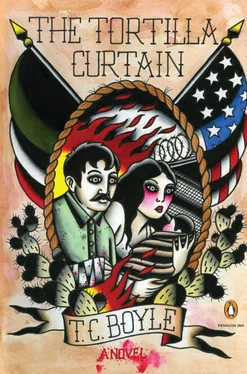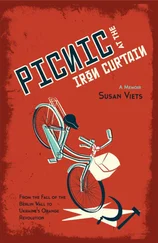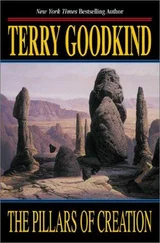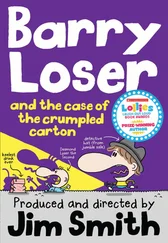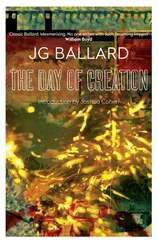T. Boyle - The Tortilla Curtain
Здесь есть возможность читать онлайн «T. Boyle - The Tortilla Curtain» весь текст электронной книги совершенно бесплатно (целиком полную версию без сокращений). В некоторых случаях можно слушать аудио, скачать через торрент в формате fb2 и присутствует краткое содержание. Год выпуска: 2011, Издательство: Penguin Books, Жанр: Современная проза, на английском языке. Описание произведения, (предисловие) а так же отзывы посетителей доступны на портале библиотеки ЛибКат.
- Название:The Tortilla Curtain
- Автор:
- Издательство:Penguin Books
- Жанр:
- Год:2011
- ISBN:нет данных
- Рейтинг книги:4 / 5. Голосов: 1
-
Избранное:Добавить в избранное
- Отзывы:
-
Ваша оценка:
- 80
- 1
- 2
- 3
- 4
- 5
The Tortilla Curtain: краткое содержание, описание и аннотация
Предлагаем к чтению аннотацию, описание, краткое содержание или предисловие (зависит от того, что написал сам автор книги «The Tortilla Curtain»). Если вы не нашли необходимую информацию о книге — напишите в комментариях, мы постараемся отыскать её.
The Tortilla Curtain — читать онлайн бесплатно полную книгу (весь текст) целиком
Ниже представлен текст книги, разбитый по страницам. Система сохранения места последней прочитанной страницы, позволяет с удобством читать онлайн бесплатно книгу «The Tortilla Curtain», без необходимости каждый раз заново искать на чём Вы остановились. Поставьте закладку, и сможете в любой момент перейти на страницу, на которой закончили чтение.
Интервал:
Закладка:
It was a joke. It had to be. They let the old gabachos out of the nursing home and sent them down here to taunt honest men, that's what it was, Cándido was sure of it, and he felt his jaws clench with hate and anger. He didn't move a muscle. Just stood there rigid.
_“Muchacho,”__ the old man said after a minute, and the wind, the tireless Santa Ana, pinched his voice till it was barely there, _“¿qué pasa? ¿Eres sordo?__ Are you deaf? I said, do you want to work?”
The car rumbled and farted through its crippled exhaust. The wind blew. The mouths of the old man's eyes beckoned. What the hell, Cándido said to himself, what have I got to lose? and he made his way round the car to the driver's-side window and leaned in. “What work?” he asked in Spanish.
There was a bottle on the seat next to the old man-two bottles, one of vodka, with a red label and clear liquid, the other with the same label but filled with a yellowish fluid, which Cándido later learned was urine. The old man didn't smell good. When he opened his mouth to smile there were only three teeth visible, two on the bottom and one on the top. “Building,” the old man said, “construction. You got a strong back, you work for me, no pissing around, eight bucks an hour.”
_Eight bucks?__ Was he kidding? It was a joke. It had to be.
“Get in the car,” the old man said, and Cándido went back round to the passenger's side, nothing to lose, jerked open the door-it was battered shut-and slid into the seat beside the two capped bottles, the clear and the tinted.
That was Señor Willis, and Señor Willis proved to be a surprise, a big surprise, the best surprise Cándido had had since he left Tepoztlán with his seventeen-year-old bride. The Corvair took the canyon road at about thirty miles an hour, the front end ratcheting and swaying, the tires gasping, black smoke pouring so thickly from the exhaust that Cándido was afraid the thing was on fire, but it made the crest and wound down into Woodland Hills, where Señor Willis pulled up in front of a house that was the size of three houses, and the bald nervous-looking _gringo__ who owned it came out and shook his hand. That was Señor Willis.
Cándido worked past dark, doing what Señor Willis told him, lifting this, pulling that, fetching a wrench, a hammer, the screw gun and two boxes of tile from the trunk of the car. Señor Willis _was__ remodeling one of the six bathrooms in this grand hushed house that was like a hotel with its potted plants and rich Persian carpets and leather chairs, and Señor Willis was a genius. An old genius. A drunken genius. A worn-out, battered and decrepit genius. But a genius all the same. He'd built hundreds of houses in his day, built whole developments, and not only in California, but in Panama too, where he'd picked up his Spanish that was so bad it made Cándido feel the way he had as a kid when the teacher would scratch her nails on the blackboard to get the attention of the class.
Cándido worked a full week with Señor Willis and then the job was done and the old man disappeared, drunk for a week more. But Cándido had money now, and he bought America things to try to cheer her, little delicacies from the grocery, white bread and sardines in oil, and the apartment fund began to grow again in the little plastic peanut butter jar. Two weeks went by. There was no work. _La Migra,__ rumor had it, had snatched six men from in front of the post office, and the agents were in an unmarked car, black, plain black, and not the puke-green you could see a mile away. Cándido stayed away for a while. He dipped into the money he'd made. America was like a stranger and she was getting bigger by the day, so big he was afraid she'd burst, and she ate everything he could bring her and kept wanting more.
He climbed the hill. Stood out front of the post office and sweated the police. And where was Señor Willis? He'd died, that must have been it. Sleeping in his car because his wife hounded him so much he couldn't take it, drinking out of the one bottle and pissing in the other, seventy-six years old with bad hips and an irregular heart and who could survive that? He was dead. Sure he was. But then, one hopeless hot wind-tortured afternoon, there came the Corvair, drifting down the road like a mirage, and there was Señor Willis with one eye bruised purple and swollen shut like some artificial thing grafted to his face, a rubber joke you'd find in a novelty shop. “Hey, _muchacho,”__ he said, “we got work. Get in.”
Three days this time. Installing new gates with gravity feed on an old iron fence around a swimming pool, then replacing the coping. And then Señor Willis was drunk, and then there was more work, and now, now that they had nearly five hundred dollars in the jar, there was a month's worth of work coming up, a whole big job of work, putting an addition on a young couple's living room in Tarzana, and what was wrong with that? America should jump for joy. They'd be out of here any day now, out of here and into an apartment where Señor Willis could come by and knock at the door and Cándido could come out and just get into the Corvair and not have to worry about La Migra snatching him off the street. But América wasn't jumping for joy. She wasn't jumping at all. She wasn't even moving. She was just sitting there by the moribund stream and the dwindling pool, bloated and fat and inanimate.
Cándido went up the hill. He was worried, always worried, but then life had its ups and downs and this time they were on the upswing, no doubt about it. He was making plans in his head and when he passed the big stubbed-toe rock where he'd encountered that son of a bitch of a _half-a-gringo__ with the hat turned backwards on his head, he refused even to think about him. There was no work today or tomorrow either. It was a holiday, Señor Willis had told him, a four-day weekend, and they would start in on the new project, the big job, on Monday. But what holiday was it? Thanksgiving, Señor Willis had said, _El Día de las Gracias, El Tenksgeevee.__
Well that was all right. Cándido would rather be working, he'd rather be putting his first and last months' rent down on an apartment, any apartment, anywhere, and bringing his wife up out of the hole she was in, but it could wait another week at sixty-four dollars a day-or at least he hoped and prayed it could. América was due soon-she looked like an unpoked sausage swelling on the grill. But he had no control over that-sure, he'd stood out there by the post office this morning, but nobody came by, nobody, it was like the whole canyon was suddenly deserted-and now he was coming back up the hill, three o'clock in the afternoon, to buy rice, stewed tomatoes in the can, a two-quart cardboard container of milk for his wife and maybe a beer or two, Budweiser or Pabst Blue Ribbon, in the tall brown one-liter bottle, for _El Tenksgeevee.__
He kept his head up on the road. La _Migra__ wouldn't be working today, not on _El Tenksgeevee,__ the lazy overfed fat-assed bastards, but you could never tell: it would be just like them to pick you up when you least expected it. There wasn't a lot of traffic-more than in the morning, but still it was nothing compared to a working day. Cándido crossed the road-careful, careful-made his way through the maze of shopping carts and haphazardly parked vehicles in the lot, and entered the _paisano's__ market, stooping to pick up a red plastic handbasket just inside the door.
The place was the same as always, changeless, as familiar to him now as the market in his own village, and still there wasn't a scent of food, not even a stray odor, as if the smell of a beefsteak or a cheese or even good fresh sawdust was somehow obscene. The light was dead. The shoppers were the same as always, the same changeless bleached-out faces, and they gave him the same naked stares of contempt and disgust. Or no, they weren't the same, not exactly: today they were all dressed up in their finery for _El Tenksgeevee.__ Cándido made his way down the canned-vegetable aisle, thinking to save the beer cooler for last, so as to keep the beer cold to the last possible moment-and he would reach way in back too, to get the maximally chilled ones. He smelled plastic wrap, Pine-Sol, deodorant.
Читать дальшеИнтервал:
Закладка:
Похожие книги на «The Tortilla Curtain»
Представляем Вашему вниманию похожие книги на «The Tortilla Curtain» списком для выбора. Мы отобрали схожую по названию и смыслу литературу в надежде предоставить читателям больше вариантов отыскать новые, интересные, ещё непрочитанные произведения.
Обсуждение, отзывы о книге «The Tortilla Curtain» и просто собственные мнения читателей. Оставьте ваши комментарии, напишите, что Вы думаете о произведении, его смысле или главных героях. Укажите что конкретно понравилось, а что нет, и почему Вы так считаете.
